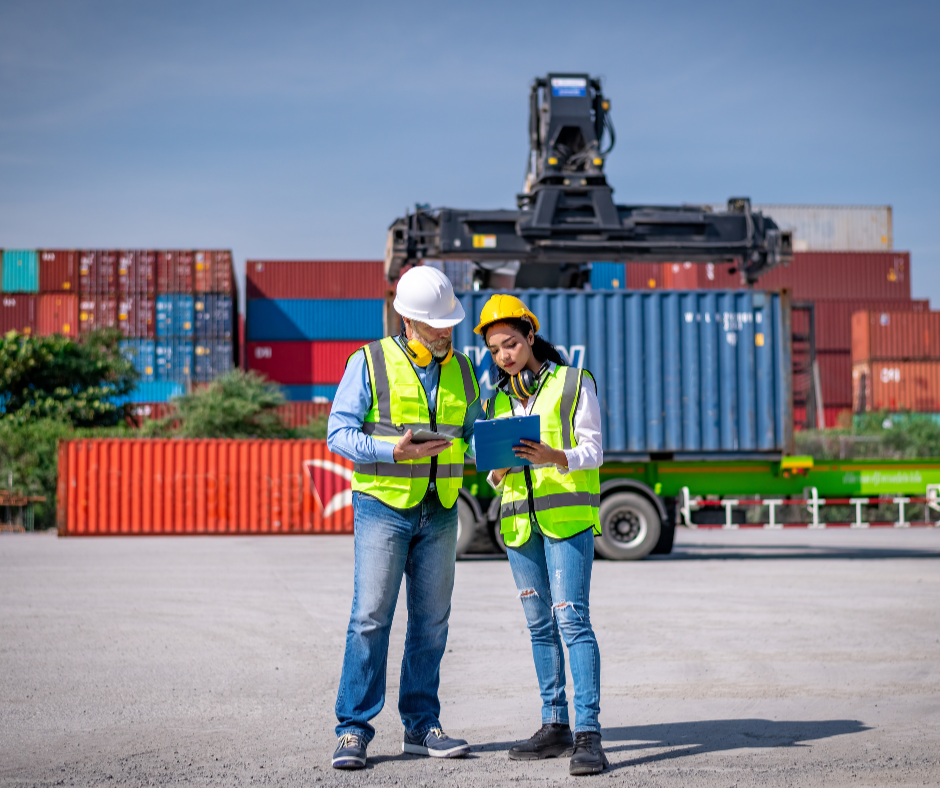
The Biggest Trends in Logistics Technology
With so many growing industries today, it’s hard to keep up with constant innovations and trends. However, there are two very helpful tips for navigating these changes. First, there are companies that do all the work and put it into simple and readable articles for you. So, whether you are looking at trends in the moving industry or current housing opportunities, you can find it all with a simple Google search. Second, you don’t have to look far for the information you need – simply rely on companies in your or a similar line of business for the latest updates. This is why RemovalsPal is here today to present the biggest trends in logistics technology.
9 Biggest Trends in Logistics Technology You Should Explore
- Blockchain Technology Monitoring logistics processes can be challenging, but blockchain technology is a game-changer. This system helps companies record transactions, track assets, and manage paperwork efficiently. Everyone involved, from manufacturers and suppliers to customers and auditors, can monitor all aspects of the business. This transparency leads to improved efficiency in every department.
- Digitalisation Digitalisation is reshaping industries, and logistics is no exception. Increasing digital literacy and consumer awareness through various online platforms is customising the buying process for clients. With digitalisation, logistics companies can expect reduced procurement and supply chain costs and increased company revenue. The overall safety and efficiency of operations are also enhanced.
- The Emergence of 3PL and 5PL Third-party logistics (3PL) and fifth-party logistics (5PL) are accelerating the global logistics market. 3PL companies cover a wide range of end-to-end transport and logistics services, including transporting goods, maintaining inventory logs, and offering protection against property loss.
- Last Mile Deliveries Last Mile Delivery is a significant trend in logistics technology, promising growth in the logistics market. With the rise of online ordering, e-commerce businesses focus on providing the ultimate buyer experience, making same-day deliveries and efficient last-mile logistics essential.
- Integration of Drones and Smart Glasses Drones and smart glasses are revolutionising last-mile delivery. VR and AI innovations enable logistics companies to improve delivery flexibility and speed. Smart glasses contribute to error-free deliveries with features like hands-free route searches and face recognition software.
- Big Data Logistics and Data Analytics In business, more information leads to better decisions. Detailed data analytics and big data in logistics allow stakeholders to make informed decisions and further business development goals. Advanced data analytics provide valuable insights into products and services.
- Logistics Automation and IoT Industry 4.0 and the Internet of Things (IoT) are transforming the global supply market. Logistics 4.0 helps combat setbacks such as transportation delays, operator errors, and poor cargo monitoring. Despite digitalisation’s advantages, concerns about cybersecurity and data protection remain, prompting cautious approaches.
- Elastic Logistics Elastic logistics has become a buzzword, offering logistics companies the ability to enhance customer experience, provide agility, and add real-time visibility. This strategy aligns business processes within different ranges and timeframes, making it a significant trend in logistics technology.
- Chatbots and Collaborative Robots (Cobots) Chatbots are becoming essential for online buyers during shopping, ordering, and checkout processes. E-commerce giants like Walmart and Amazon are exploring the use of CoBots in warehousing. AI-driven robotics promise to replace manual labour in packaging, storing, and picking in warehouses and distribution centres.
Final Thoughts
As a company dedicated to the development and digital progress of removal industry businesses, RemovalsPal understands the importance of new and exciting trends. Keeping up with trends in logistics technology is crucial for staying competitive and engaging customers. Focusing on these trends can only benefit your business in the long term.




